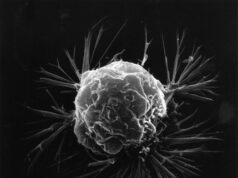By Michael Angelo S. Murillo
SOME people dread old age believing that they will feel “limited.” But health experts say that should not be the case, especially if one is prepared for it.
In a recent media round-table discussion organized by Nestlé Health Science at the Manila Diamond Hotel (it is part of the group’s “Opt to Be Active” advocacy program), resource speakers underscored the necessity of being proactive in one’s choices as far as health and wellness are concerned, and how it would go a long way in living “young” longer.
The discussion revolved around “Dietary management of malnutrition in adults,” which the experts said is an issue as we hit the geriatric stage.

They said that as one grows old, his/her body does not function the same way as when one is young. The body does not regenerate as it used to which leads to chronic conditions and non-communicable diseases like hypertension, diabetes, respiratory disease, and even in extreme cases, cancers, which severely hamper the ability of an older person from leading a fuller life.
The experts, however, said these can be avoided by early management and prevention, by committing ourselves to an active life anchored on maintaining a healthy diet, exercising regularly, and keeping the mind active.
In his lecture during the round-table discussion, Dr. Jimmy Bautista, Medical & Scientific Affairs Lead at Nestlé Health Science, stressed that the human body has two different ages — a chronological age and a biological age.
Chronological age is based on the calendar year while biological age focuses on the person’s individual physiological processes and the status of one’s health and fitness.
“People who optimize their health may have a biological age that is 10 years younger than their chronological age. At the same time, the presence of chronic conditions may accelerate the body’s decline, making us biologically older than our chronological age,” said Dr. Bautista.
Resource speakers said meeting the right energy and nutrient requirements is important. A channel to go about it, they said, is through taking nutritionally complete oral supplements, in tandem, of course, with proper exercise and diet. It is one of the simplest and cost-effective strategies to achieve malnutrition prevention and management, the experts said. They cautioned, however, that taking supplements should be done with guidance from medical and health experts so as to get its full effect.
NHS has been developing a range of oral supplement products.
The health science arm of Nestlé believes that the food being consumed on a daily basis is the largest single influence on our health, which is why preparing healthy meals and optimizing nutrient intake is very key.
“By shifting the way people manage health and nutrition, we have the force to improve lives around the world because beyond medicine, there is nutritional therapy,” said Nestlé Health Science Country Business Manager Angela Sison in underscoring what nutritional therapy is.
“This is what is considered the point where scientific research meets human insight,” she added.
To know more about Nestle Health Science and “Opt to Be Active” program, visit www.nestlehealthscience.com.



